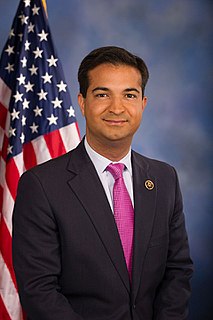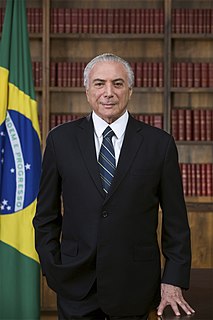A Quote by Sanjaya Baru
When national policy becomes hostage to regional interests, the federal government becomes paralysed and would be unable to act in the larger national interest.
Related Quotes
The proposed constitution, therefore, even when tested by the rules laid down by its antagonists, is, in strictness, neither a national nor a federal constitution; but a composition of both. In its foundation it is federal, not national; in the sources from which the ordinary powers of the government are drawn, it is partly federal, and partly national; in the operation of these powers, it is national, not federal; in the extent of them again, it is federal, not national; and finally, in the authoritative mode of introducing amendments, it is neither wholly federal, nor wholly national.
I think what we need to do is understand our number one obligation is to act in the national interest of the United States of America. I believe it is in our national interest to see democracy take hold on the island of Cuba. And so we examine our foreign policy, including all the changes that President Obama made, in that lens and through that lens.
Governments do not necessarily act in the national interest, especially when making detailed microeconomic interventions. Instead, they are influenced by interest group pressures. The kinds of interventions that new trade theory suggests can raise national income will typically raise the welfare of small, fortunate groups by large amounts, while imposing costs on larger, more diffuse groups.
It is the people who constitute the basis of Government credit. Why then cannot the people have benefit of their own gilt-edge credit by receiving non-interest bearing currency-instead of bankers receiving the benefit of the people's credit in interest-bearing bonds. If the United States Government will adopt this policy of increasing its national wealth without contributing to the interest collector-for the whole national debt is made up on interest charges-then you will see an era of progress and prosperity in this country such as could never have come otherwise.
I believe that the Constitution is not hostile to the idea that national problems can be solved at the national level through the cooperative efforts of the three coequal branches of government, the Congress, the executive and courts. But not every president, not every legislator and not every judge agrees that the federal government has the power to address and to try to remedy the twin national problems of poverty and access to equal opportunity.




































